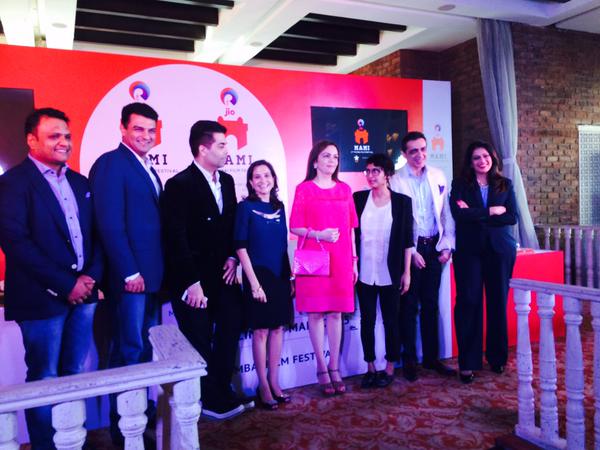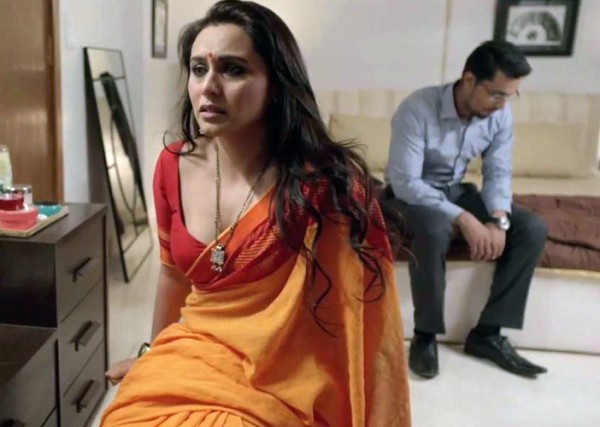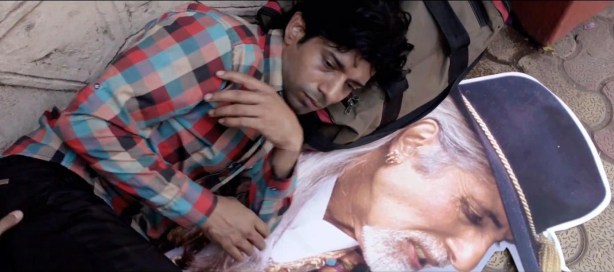
SPOILER ALERT
First let me make it clear, Ae Dil Hai Mushkil (ADHM) is about love not unrequited love. But I don’t want to talk about ADHM the film, as much as I want to talk about love. Not relationships, just love.
Just like Karan Johar (and many of us), defining love has been a pet preoccupation most of my life too. Having seen around me disastrous outcomes of the passionate / possessive kind of love and its long-term damage, I grew up wanting to avoid those kind of experiences. Passionate romantic relationships would leave you wrecked and changed for life – was the message etched in my head. Until I turned 21 and dutifully took charge, to define love once and for all.
Just like our man Karan Johar, I quipped in an epiphany, ‘Love is friendship!’
You see, I had just met the love of my life, the man I wanted to have children with and grow old with but neither our bond nor relationship fitted into the YRF model (any other model was either too outdated or too modern) and it was important to me that I define. Imtiaz Ali had not debuted then, otherwise he may have helped. Left to my own wits, I decided that the best and most enduring expression of love is friendship. And that is the best form for your romantic relationship to take, keeps the politics of love from infecting its beauty. Because the butterflies-in-the-stomach, sleepless nights, restless ardour and passionate sex kind of romance is mere gender role-play, political, skin-deep and temporary while long-lasting relationships are made of soul connect, on the basis of an equal companionship. My understanding of the emotional complexity of relationships and love then was limited to these polarities. The many faces of love were mere ‘types’ for me.
There was a gap of a good 15 years between me naming my chapter of love and watching Ae Dil Hain Mushkil. My Mughl-e-Azam level romance was behind me for good and whereas it did leave me wrecked and changed for life while I was at it, it wasn’t the passion or possession of love that did it. Rather, as I came to see, to some extent, it was a lack of it. Love as friendship was the culprit. That left me flummoxed. But not surprised.
There was something very familiar in the story I was not telling myself. The story behind the story of why I had forced love into the mould of friendship when I wanted more and different. I had faced it but with Alizeh I faced it again. I was Alizeh, without the experience, but with the knowledge of how deeply love can scar, hence friendship was the safest and best form of love. I was Alizeh who has fully filmy dreams but didn’t really believe they would ever come true while she really wanted them to. I was Alizeh who has felt so vulnerable in love that putting on a don’t-care-a-damn attitude is the best defense, the best way to protect herself from it again. I was Alizeh who believes only friendship lasts because she has seen love crumble in front of her eyes. Her helplessness at the altar of love, at once scared and wise was mine. So in fear, I scrambled to firmly place love in the safe universe of friendship. The only difference was, she did it after her first heartbreak, I did it before, to avoid one. She found her home and I was lost. But the fear of pain that spawned it was the same.
And it this very fear of pain Alizeh overcomes when she lets her last dream be fulfilled. She allows love back into her life but with the wisdom of experience. ‘I friend you’ she says to Ayan’s helpless ‘I love you’, telling him she accepts his love and wants to love him back just that her favourite form of expression is different. And Ayan accepts, not because she is dying and he is desperate, but out of a largesse that naturally comes out of deep passion. Suddenly, love becomes formless even though both remain adamant on its form. Because it is within Alizeh’s choice to return and Ayan’s acceptance of her as is, that lies the real expression of love, formless and boundless. It no longer matters what they say, their actions have spoken.
That is why, even though she is dying in the film, for me, she wins. And so does Ayan, even though he doesn’t seem to get what he wanted. Because love wins. They may not have had their love fulfilled in the way they wanted but they had their love returned. To be requited, love just needs love, itself, not form. It’s when we get lost in the form we miss seeing the love that is happy being outside. To me, the film’s end signified a fresh start to Ayan and Alizeh’s quest for exploring a different form of love, this time together and with more wisdom. Time would tell if they would find a meeting ground or conclusions, but in their acceptance of each other’s love was the acknowledgment of its formlessness. To my mind, her “I friend you’ didn’t seem like a stubborn quibble but simply a reiteration of not having to define love at all. Let’s keep it as undefined as a friendship is, and let it blossom. And take it from there, she seems to be saying.
But what had turned Alizeh off in the first place? It was the neediness of love, the soul-scorching neediness of love and not its heady passion that she had experienced. She had seen its destructive face, not its procreative desire. Maybe she mistook both but love wasn’t a happy place for her to be in anymore. And so for Saba. But for Ayan, this very attachment is the Holy Grail he was seeking. His heart has passed the flower pot test. And so has Tahir Khan’s. But Ayan is still struggling under the weight while Tahir wears it with pride, not as a badge of honour, but as something life-affirming because it keeps him connected to the one he loves even without her presence in his life. I have my love, if not her…he says, and we are back to the formlessness of love, one that doesn’t seek possession, one that doesn’t need validation by the others’, it is valid in itself by its own presence.
Among the four, we are left feeling that it is only Saba who remains unfulfilled. Is it because that she unknowingly craved again for the same form of love she had left behind? The small interaction with her ex-husband shows she has not forgiven or forgotten yet. That is why she is steering clear of love, it can only be no strings attached especially emotional ones coz the earlier form did not quite work. Just like Alizeh, she too is still yearning and it is this that draws her to Ayan but she doesn’t know that until later. And when she does, she sees she has been seduced by love in the same form again. She wants to give in but cannot see the same light in his eyes. Letting Ayan go seems the rightest thing to do to her. If Ayan has already given away his love to someone else does she have a right to ask for it? She moves away with dignity. Despite clinging to a particular form of love she unfetters her love from its demands without knowing. No longer possessive, her love protects them both as much as it hurts. She goes back to her home, poetry. A more sublime form of the expression of love? Does she really remain unfulfilled? Is love letting go?
I wish Saba’s character had been given more attention and screen-time for very selfish reasons. If the girl in me related to the awkward young girl in Alizeh, the woman in me empathised with the poised middle-aged woman in Saba. I was Saba, too fearful to give love a chance again. I was Saba, fooling herself she is strong when it was just a façade. I was Saba, with wounds still raw, inviting more wounds pretending she is trying to heal them, almost as a punishment. I was Saba whose pain had a certain stillness about it, it did not roar and burn. I was Saba who has now found letting go is as easy as getting attached used to be.
Her meeting with Alizeh in Ayan’s presence was one of the sequences in the film that seemed to be dealt with quite an intuitive hand, in writing, performance, and direction. There is a hierarchy, ever-so-subtle, where age and looks play a significant part but no politics. The girl in Saba (which Ayan’s attentions has stirred, him being younger) recognises the girl in Alizeh and the older and wiser woman inside her responds, she is not only graceful she is gracious too. Alizeh’s awe and awkwardness in front of Saba’s self-assured poise is not only a reflection of her own discomfort with her femininity (and hence love too, to an extent) but also the girl yet to acquire the wisdom of womanhood, looking at what she would like to grow up to be after a couple of years. Or something so unattainable she never hoped to attain it anyways. The scene lays bare everyone’s insecurities and strengths without needing to politicise them.
If the girl inside Saba hurts to see Ayan loving someone else the way she wants him to love her, the woman in her knows letting go is the wisest thing to do. Love will find a way, KJo said in one of his earlier (and lesser) films.
As is inherent in the human condition, there is a constant tussle between the possessive and transcendental aspects of love, aspects most films aspire to portray but fail at evoking. ADHM does not pretend to, caught as it is, despite its best efforts, in the limitations of its emotional language and landscape. But it does pit these aspects against each other fairly well. If love as passion (junoon) is transcendental for Tahir, for Saba it is possessive. If love as friendship is transcendental for Alizeh, for Ayan it is immaterial. He craves transcendence through possession.
Yet, in the end, it is Ayan who takes the biggest leap of faith in the film, out of sheer love; he simply cannot help it. In doing so, he opens a window within to a love that does not seek to possess, love that liberates. It is not difficult to imagine him, few years down the line, wearing it with pride, this new-found joy in the junoon of love, like Tahir does. It’s like he amalgamates everyone’s journeys, even though it is they who spur him on to his. His emotional journey is Alizeh, Saba and Tahir’s catharsis, bringing together four people happy to fly solo in love. I loved him for being helplessly passionate showing me its ok to believe in the junoon of love, that’s a form of expression too. But I loved him more for being the very vulnerable boy he was, almost saying is there any other way to love really?
What seems so brave in the film is the atypicality of the portrayal of love. It does not pretend to be grandiose, or lofty (like KANK) it’s rather earnest, the unabashed love for Bollywood adding an almost unconscious subtext of Bollywood romantic models to the film. It’s like we know what these kids have grown up on, setting the context of their influences, behaviour and beliefs, in a certain sense too. And in a wider sense encompassing all those film lovers and filmy lovers who brought up on Bollywood too, make films and love what it is – friendship, passion, commitment, relationship or plain confusion.
And probably that is why, inspite of myself, I was Alizeh, Saba, Ayan and Tahir, separately and all at once. I didn’t understand them, I just recognised them in me, struggling between having love and being it. And like all of them beginning to realise love is not a goal to be met, it is a state of mind and if Rumi were asked, ‘state of the soul’. And isn’t there something about non-separation there?
Love is coming home, whichever route you choose to take.









